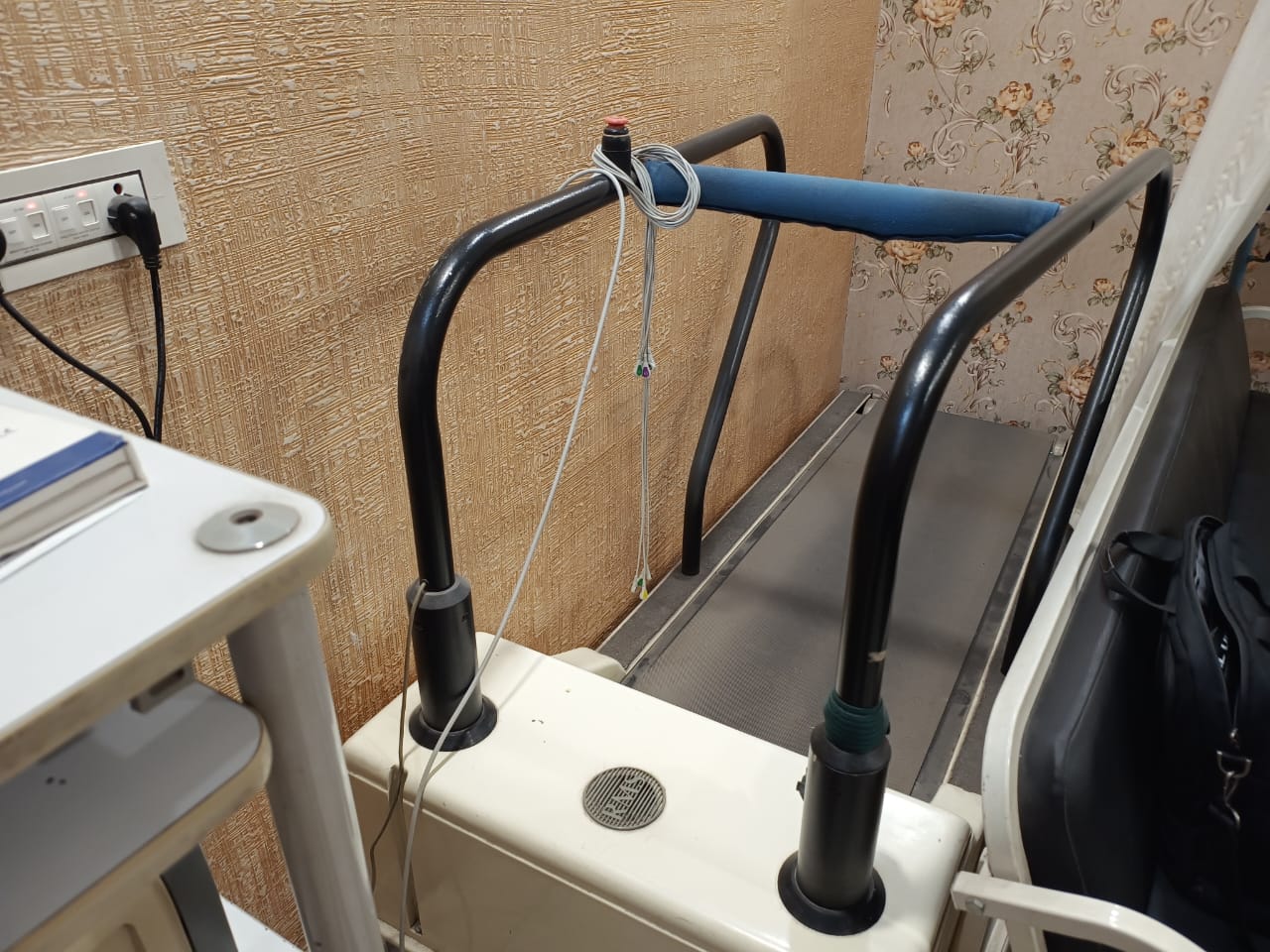Heart Care

A Treadmill Test (TMT), also known as an exercise stress test, is a diagnostic procedure used to assess overall heart health. During this test, patients walk or run on a treadmill while their heart rate, blood pressure, and ECG are monitored. Here’s what you need to know about TMT:
Purpose of TMT:
- Assess how effectively the heart responds when it works harder than at rest.
- Evaluate heart function for individuals at risk of heart diseases.
- Identify cardiac muscle or valve problems.
- Assess blood supply adequacy to the heart.
- Diagnose symptoms related to coronary artery diseases.
Procedure:
- Patients walk on a treadmill, and the pace gradually increases.
- Achieved milestones (distance, heart rate, ECG changes) are recorded.
- The test stops if irregular heart rhythms or reduced blood supply occur.
- Expert supervision ensures safety during the controlled exercise.
Risks (Rare):
- Chest pain
- Irregular heartbeat
- Fainting
- Collapsing
- Heart attack (very low chance)
Preparation:
- Wear jogging attire and suitable shoes.
- Avoid heavy meals before the test.
- Consult your doctor regarding medication adjustments.
Benefits:
- Assess chest pain causes (coronary artery disease).
- Evaluate heart rhythms.
- Check blood flow during exercise.
- Assess heart valve function.
- Detect post-angioplasty artery re-narrowing.
- Determine heart disease-related symptoms.
Remember, a TMT is performed in a controlled environment under expert supervision.

